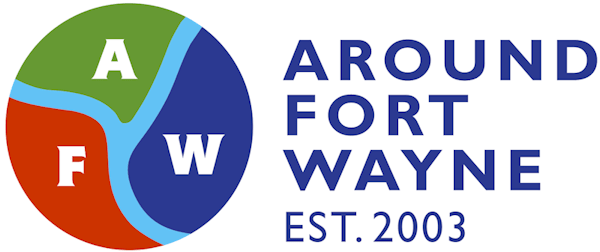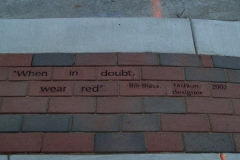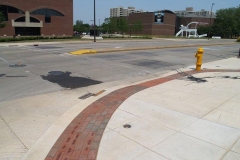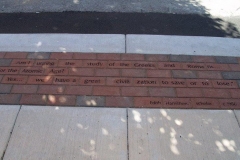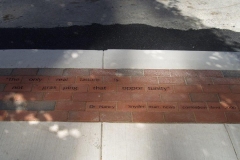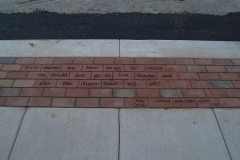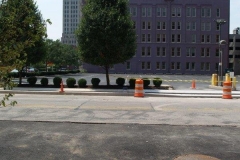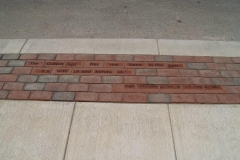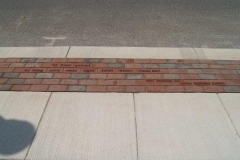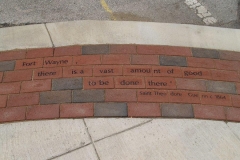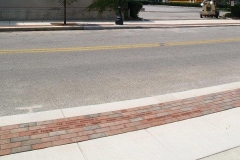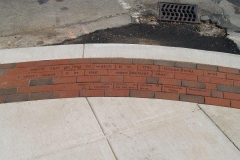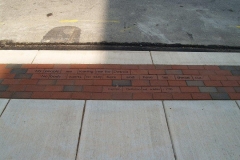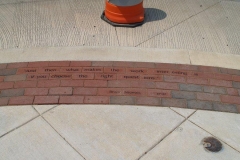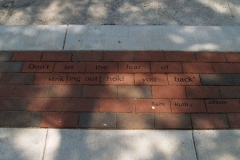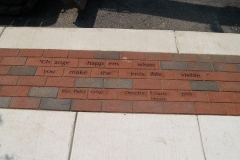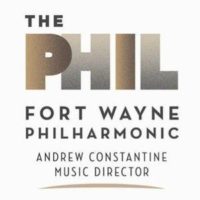
News release from the Fort Wayne Philharmonic:
Freimann Series: Schubert’s Octet
(April 8, 2016) – The fourth and final concert of the Brotherhood Mutual Insurance Freimann Series, “Schubert’s Octet,” will feature Fort Wayne Philharmonic musicians in small ensembles performing three varying works: Cantabile for Violin and Harp, Op. 17 by Niccolò Paganini, Joseph Guy Marie Ropartz’s Prelude, Marine et Chansons, and Franz Schubert’s monumental Octet in F major, Op. 166.
Each Freimann Series program is performed twice. The first is scheduled for Wednesday, May 4th at the Fort Wayne History Museum beginning at 7:30 p.m.; the second on Sunday, May 8th, 2:30 p.m., at the Rhinehart Music Center at IPFW.
Niccolò Paganini was one of the most famous virtuosi of his day, and considered to be one of the greatest violinists who ever lived. Also a gifted composer Paganini was born in Genoa, Italy and was taught to play the violin at a very early age. A child prodigy, in his early teens Paganini studied under Alessandro Rollo and Gasparo Ghiretti. After his 1813 debut in Milan Paganini was soon recognized as a legend for his unparalleled mastery of the violin. Fame came with the superstition that his incredible virtuosity was garnered through a pact with the devil.
Paganini’s intimate violin/guitar sonatas offer a glimpse into the famous composer’s colorful yet relatively unknown works. His Cantabile for Violin and Harp has short, lyrical melodies and challenging passages for the performers. Principal second violin Olga Yurkova and principal harp Anne Lewellen will perform this work.
The second piece on the program is Ropartz’s Prelude, Marine et Chansons, performed by Olga Yurkova, Anne Lewellen, flutist Vivianne Belanger, violist Debra Welter, and cellist Deborah Nitka Hicks. Composed in 1928, Ropartz’s work is scored for flute, harp, violin, viola and cello. The flute takes center stage and functions in direct musical conversation with the other instruments. Joseph Guy Marie Ropartz, self-identified as a Celtic Breton, enjoyed a lifespan that cut across the enormous territory of French music. In 1885 he entered the Conservatoire de Paris, studying under Théodore Dubois, then Jules Massenet. He later studied organ under César Franck, who was a major influence on his musical style, as well as the French Impressionist Claude Debussy.
The final work of the evening is Schubert’s Octet in F major, performed by Olga Yurkova, principal clarinet Campbell MacDonald, principal horn Michael Lewellen, principal bassoon Dennis Fick, acting concertmaster David Ling, principal viola Derek Reeves, principal cello Andre Gaskins, and principal double bass Adrian Mann.
Written in 1824, the Octet in F major was modeled after Beethoven’s Septet for strings and winds. Schubert included a second violin part, rounding out the strings, but kept true to the rest of Beethoven’s original instrumentation. At nearly an hour in length, the work signals a great musical maturity wherein Schubert found his own true compositional voice and the confidence gleaned from having improved on past successes.
Franz Schubert bridged the worlds of Classical and Romantic music. The son of a schoolmaster who had settled in Vienna, he was educated as a chorister at the imperial court chapel. He later qualified as a schoolteacher, joining his father in the classroom. Schubert spent his life largely in Vienna, and mostly in the company of friends, but sadly never enjoyed the patronage of a wealthy donor and only held a position in the musical establishment near the very end of his short life. He died at the early age of 31 as the result of a syphilitic infection. While during his life Schubert was celebrated for his songs and shorter piano pieces, the full scope of his genius as a composer of large-scale orchestral, chamber and piano works remained hidden for many years after he died.
Johannes Brahms eloquently paid tribute to Franz Schubert in June 1863 by saying, “My love for Schubert is a very serious one, probably just because it is not a fleeting fancy. Where is genius like his, which soars aloft so boldly and surely, where we then see the first few enthroned? To me he is like a child of the gods, who plays with Jupiter’s thunder, albeit also occasionally handling it oddly. But he plays in such a region, at such a height, to which the others are far short of raising themselves.”
Program:
“Schubert’s Octet”
Wednesday, May 4 | 7:30 P.M.
Fort Wayne History Center
Sunday, May 8 | 2:30 P.M.
Rhinehart Music Center, IPFWPAGANINI Cantabile for Violin and Harp, Op. 17
- Anne Lewellen, harp
- Olga Yurkova, violin
ROPARTZ Prelude, Marine et Chansons
- Vivianne Belanger, flute
- Anne Preucil Lewellen, harp
- Olga Yurkova, violin
- Debra Welter, viola
- Deborah Nitka Hicks, cello
– Intermission –
SCHUBERT Octet in F major, Op. 166
- Campbell MacDonald, clarinet
- Michael Lewellen, horn
- Dennis Fick, bassoon
- David Ling, violin
- Olga Yurkova, violin
- Derek Reeves, viola
- Andre Gaskins, cello
- Adrian Mann, double bass
General admission tickets for “Schubert’s Octet” start at $20 and are conveniently available for purchase online at fwphil.org. Purchases can also be made in person at The Phil Box Office located at 4901 Fuller Drive or over the phone by calling 260-481-0777. The Phil Box Office is open Monday through Thursday 9:00 a.m. to 6:00 p.m., Friday 9:00 a.m. to 5:00 p.m., or Saturday (Masterworks and Pops concert days only) from 12:00 noon to 4:00 p.m. Tickets may also be available for one hour prior to each concert venue. Full program and series information is available at fwphil.org.
About the Fort Wayne Philharmonic Orchestra
Fort Wayne Philharmonic Now performing its 72nd season, The Fort Wayne Philharmonic’s mission is to inspire and foster a lifelong love of classical music through performance and education. The Phil is led by Music Director Andrew Constantine and is a member of the League of American Orchestras, a funded member of Arts United of Greater Fort Wayne, the Indiana Arts Commission and National Endowment for the Arts. For additional information visit fwphil.org.
